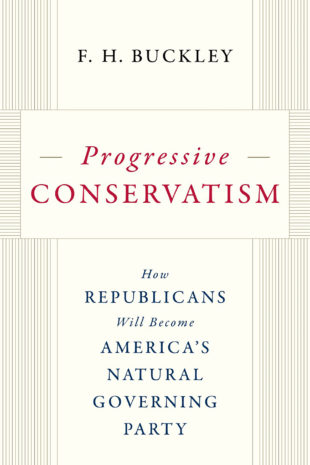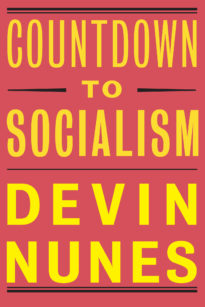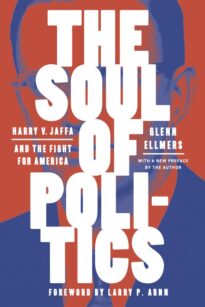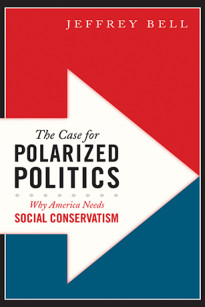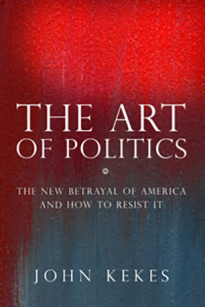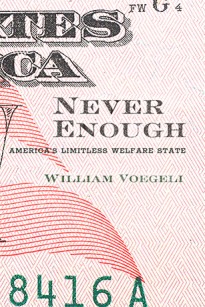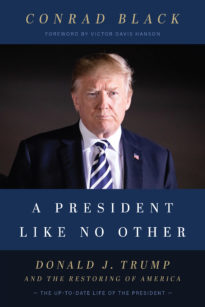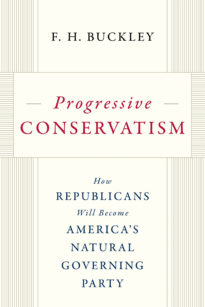Right-wingers detest the progressive label, without knowing a great deal about it. They trace the modern regulatory state all the way back to Theodore Roosevelt’s embrace of administrative agencies, and think that that’s when it all went to Hell. But then a lot of things needed regulating 120 years ago. The municipal corruption and slum conditions described by muckraking journalists such as Lincoln Steffens, Ida Tarbell and Roosevelt’s friend, Jacob Riis, would disturb everyone today. No one would want to go back to the unregulated meatpacking industry portrayed in Upton Sinclair’s The Jungle.
Right-wingers are Manicheans who see things in terms of black or white, but the attempt to read everything malign into progressivism distorts it, “as if through a fun-house mirror” in the words of Ken Kersch. In truth, there was no one progressive movement, but a variety of them. Some were recognizably left-of-center, like that of Herbert Croly (1869-1930) with his mistrust of “extreme individualism” and faith in centralized government and scientific planning by a body of experts. Others, especially the western agrarians, were conservative and individualistic, and more Jeffersonian than the Hamiltonian Croly. What they wanted, and what every conservative wants today, was a mobile society where everyone who puts in the effort can get ahead.
The conservative strain in progressivism arose in the West, the land of free soil and free labor where the Republican Party was born, and found its champion in the first great progressive historian, Frederick Jackson Turner (1861-1932). What made Turner both a conservative and a progressive was his celebration of democracy and freedom, which he said were the gifts of the frontier. Our history was forged not in Jamestown or Boston, but in Stephen Vincent Benét’s Tucson and Deadwood and Lost Mule Flat, and the way in which America had constantly reinvented itself in its restless movement westward, even as the dude became Mark Hanna’s “damn cowboy” when Theodore Roosevelt bought a ranch in the North Dakota badlands.
Eastern states were corrupt, undemocratic and immobile, said Turner, while western states were the repository of republican virtue, democratic and mobile. They had to be, to attract the settlers they needed, and so they competed for people by offering them fresh starts, free land and egalitarianism. They gave women the franchise, enacted initiative and referendum laws and supported the popular election of senators under the Seventeenth Amendment. They liked competition and didn’t think there was enough of it back east. All this came to define the American Dream, the idea that there were boundless possibilities of self-improvement in this country. In time, the eastern states that were losing people to the west began to compete for people by liberalizing themselves. It all came from the west. “The reign of aristocracy is passing,” said Turner. “That of humanity begins.” He was a conservative progressive.
If progressivism lacks a clear meaning, conservatism isn’t better defined. You might think that, if nothing else, conservatives would all oppose radical change, but progressive conservatives sound like revolutionaries when they talk about taking back the culture. The Left’s long march through our institutions has silenced and excluded conservatives, and progressive conservatives say we should break up the monasteries. That’s progressive, but it’s not how conservatives used to think. Evidently, progressive conservatism represents a blending of former labels
Progressive conservatives support our country’s free-market economic institutions. But if conservatism means a bias against change and innovation, the label doesn’t fit free market progressive conservatives. Nothing is more radical than the way in which free competition churns our economic institutions, burying one corporate behemoth after another in what Joseph Schumpeter called the “creative destruction” of capitalism. Take a look at a magazine from 60 years back and see who advertised in it. They’re mostly gone now, and only Exxon cracks the top-ten list in both 1960 and 2020. Many of today’s biggest firms, the Apples, Amazons and Walmarts, weren’t even around 60 years ago. Trump was a progressive conservative when he objected to trade treaties that subject American firms to unfair foreign competition, but he didn’t attack free market capitalism. That job he left for the Democrats.
